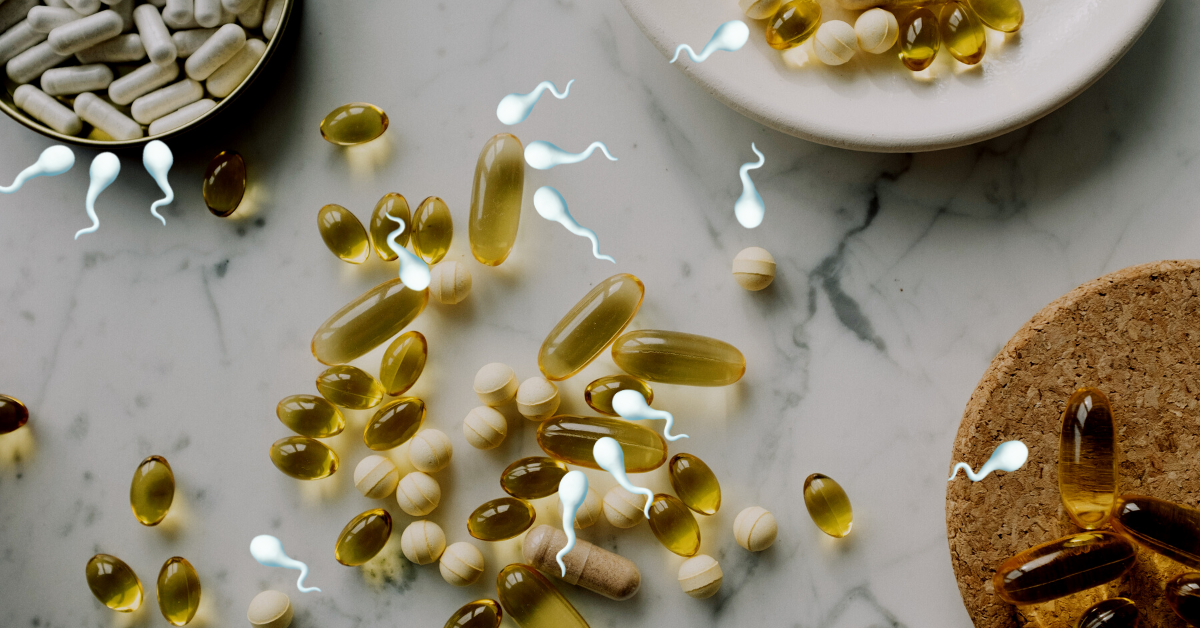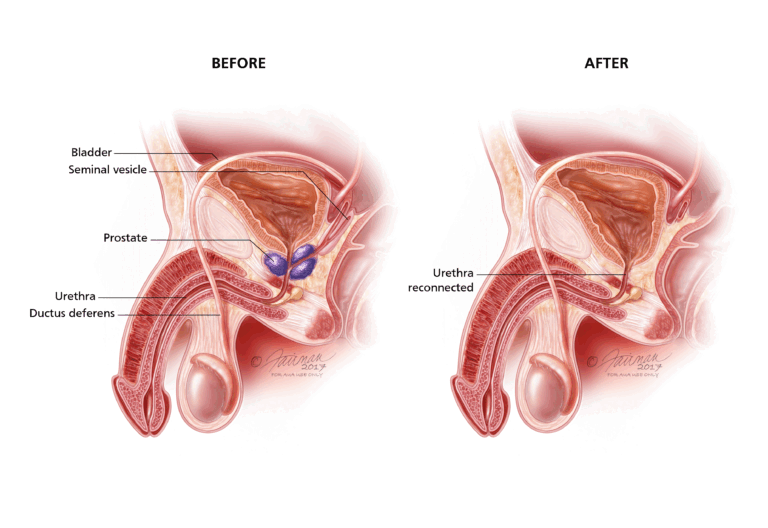Boost Male Fertility With These Top Rated Supplements

Table of Contents
Factors Affecting Male Fertility

Male fertility is influenced by a multitude of factors, both internal and external. One of the primary factors affecting male fertility is age. As men get older, their sperm quality and quantity tend to decrease. Research has shown that men over the age of 40 are more likely to experience decreased fertility compared to younger men. However, it’s important to note that age is not the sole determinant of fertility, and many men are able to father children well into their later years.
Another crucial factor that can impact male fertility is lifestyle choices. Habits such as smoking, excessive alcohol consumption, and drug use have been linked to reduced sperm quality and motility. Furthermore, obesity and a sedentary lifestyle can also have a negative impact on fertility. Studies have found that overweight or obese men may produce lower quality sperm and have decreased sperm count. Therefore, it is essential for men to adopt a healthy lifestyle, which includes regular exercise, a balanced diet, and avoiding harmful substances, to optimize their chances of achieving pregnancy.
Understanding Male Reproductive System

The male reproductive system is a complex network of organs, hormones, and biological processes that work together to produce and deliver sperm. Understanding the intricacies of this system is crucial for individuals and couples who are seeking to enhance their fertility or address any reproductive health concerns.
At the center of the male reproductive system is the testes, which are responsible for producing sperm and testosterone—the primary male sex hormone. Sperm cells are produced within the seminiferous tubules of the testes, where they undergo a process called spermatogenesis. This intricate process involves the division and maturation of sperm cells to produce functional and motile spermatozoa. Once matured, sperm cells are stored in the epididymis—a coiled tube located on the surface of the testes—until ejaculation.
Apart from the testes, several other accessory organs and structures contribute to the male reproductive system. The vas deferens, seminal vesicles, prostate gland, and bulbourethral glands all play vital roles in the production, storage, and transport of sperm. Each of these structures has unique functions that contribute to the overall process of reproduction.
Understanding the male reproductive system not only helps individuals gain insight into their own fertility but also serves as a foundation for exploring potential therapies or lifestyle modifications that can enhance reproductive health. By comprehending the intricate processes and functions of this system, individuals can make informed decisions regarding their reproductive journey.
Importance of a Healthy Lifestyle for Male Fertility

Maintaining a healthy lifestyle is crucial for male fertility. A range of factors, including diet, exercise, stress levels, and exposure to environmental toxins, can influence a man’s reproductive health.
Diet plays a significant role in male fertility. Incorporating a balanced diet rich in fruits, vegetables, whole grains, lean proteins, and healthy fats can provide essential nutrients that support sperm production and function. It is recommended to limit the consumption of processed foods, sugar, and trans fats, as they may have adverse effects on sperm quality. Additionally, maintaining a healthy weight is important, as obesity has been linked to decreased sperm parameters and fertility issues. Regular exercise also contributes to overall health and can positively impact male fertility. However, it is essential to avoid excessive physical strain or endurance exercises, as they may have a detrimental effect on sperm quality.
Dietary Supplements for Male Fertility Enhancement
Dietary supplements have gained popularity as a potential method for enhancing male fertility. These supplements contain various nutrients and compounds that are believed to positively impact sperm production, motility, and overall reproductive health. While further research is needed to fully understand their efficacy, some studies suggest that certain supplements may indeed offer benefits.
One such dietary supplement that has garnered attention is Coenzyme Q10 (CoQ10). CoQ10 is a naturally occurring enzyme found in the body, and it plays a crucial role in energy production. Some research suggests that CoQ10 supplementation may improve sperm count and motility, as well as reduce oxidative stress in the reproductive system. However, it is important to note that the scientific evidence regarding the direct benefits of CoQ10 on male fertility is somewhat limited, and more rigorous studies are needed to establish its true effectiveness.
Another dietary supplement that has been explored for its potential fertility-enhancing properties is L-Carnitine. L-Carnitine is an amino acid naturally produced in the body and is involved in energy metabolism. Some studies suggest that L-Carnitine supplementation may improve sperm count, motility, and quality. Additionally, it has been proposed that L-Carnitine may help protect sperm from oxidative damage. However, more research is needed to fully understand the extent of its impact on male fertility and determine the appropriate dosage for supplementation.
In conclusion, dietary supplements for male fertility enhancement have gained attention as a potential strategy for improving reproductive health. While some evidence suggests that certain supplements may offer benefits, it is important to approach these claims with caution and consult with a healthcare professional before starting any supplementation regimen. Further research is needed to fully understand the efficacy and safety profiles of these dietary supplements.
The Role of Antioxidants in Boosting Male Fertility
Antioxidants, typically found in fruits, vegetables, and certain dietary supplements, play a crucial role in maintaining cellular health and protecting the body against oxidative stress. When it comes to male fertility, these powerful compounds have been shown to have a positive impact on sperm quality and function. Several studies have demonstrated that higher levels of antioxidants in the seminal fluid are associated with better sperm parameters, including improved sperm count, motility, and morphology.
One of the main ways antioxidants work to enhance male fertility is by neutralizing harmful free radicals in the body. Free radicals are unstable molecules that can cause damage to cells, including sperm cells. This damage can lead to increased DNA fragmentation, reduced sperm viability, and impaired fertilization potential. By scavenging these free radicals, antioxidants help to protect sperm cells from oxidative damage, thus maintaining their structural integrity and overall health. Additionally, antioxidants have been shown to improve sperm membrane fluidity, which is essential for proper sperm motility, allowing them to swim effectively towards the egg.
While the research in this area is still ongoing, the evidence thus far suggests that incorporating antioxidant-rich foods and supplements into a healthy lifestyle may have significant benefits for male fertility. However, it is important to note that not all antioxidants are created equal. Different antioxidants have different properties and mechanisms of action, and their effectiveness can vary based on individual factors. Furthermore, the optimal dosage and duration of antioxidant supplementation for fertility enhancement are still being investigated. Therefore, it is important for men seeking to improve their fertility to consult with a healthcare professional or fertility specialist who can provide personalized advice and guidance based on their specific needs.
Certainly! Here’s the information on the role of antioxidants in boosting male fertility with concise and credible link text:
| The Role of Antioxidants in Boosting Male Fertility | Key Aspects | Implications and Considerations | Credible Source |
|---|---|---|---|
| 1. Understanding Antioxidants | – Antioxidants neutralize free radicals, preventing cellular damage. | – Antioxidants crucial for protecting sperm from oxidative stress. | Asian Journal of Andrology |
| 2. Impact of Oxidative Stress on Sperm Health | – Oxidative stress damages sperm membranes, DNA, reducing motility. | – Elevated oxidative stress linked to male infertility conditions. | Fertility and Sterility Journal |
| 3. Common Antioxidants Beneficial for Male Fertility | – Vitamin C: Enhances sperm motility, protects against DNA damage. | – Vitamin E: Improves sperm membrane integrity, reduces oxidative stress. | European Review for Medical and Pharmacological Sciences |
| – Selenium: Essential for sperm formation, acts as cofactor for enzymes. | – Zinc: Prevents oxidative damage to sperm DNA. | Frontiers in Bioscience | |
| 4. Dietary Sources of Antioxidants | – Incorporate antioxidant-rich foods for overall reproductive health. | – Fruits, vegetables, nuts, seeds excellent sources of antioxidants. | Journal of Assisted Reproduction and Genetics |
| 5. Supplementation and Male Fertility | – Antioxidant supplementation recommended for infertility related to oxidative stress. | – Consult healthcare professional for personalized antioxidant regimen. | Cochrane Database of Systematic Reviews |
| 6. Lifestyle Factors and Oxidative Stress | – Address lifestyle factors, quit smoking, reduce alcohol intake to support antioxidants. | – Maintain a healthy lifestyle for optimal male fertility. | Reproductive Biomedicine Online |
Zinc and Male Fertility: A Vital Connection
Zinc is an essential mineral that plays a crucial role in male fertility. It is involved in numerous biological processes, including the production and maturation of sperm cells. Research has shown that low levels of zinc in the body can negatively impact sperm quality and fertility.
One study conducted on infertile men found that those with low zinc levels had lower sperm counts and motility compared to men with adequate zinc levels. Zinc deficiency has also been linked to abnormal sperm morphology and DNA damage. Therefore, ensuring sufficient zinc intake is vital for maintaining optimal male reproductive health.
To boost zinc levels naturally, incorporating zinc-rich foods into the diet is recommended. Foods such as oysters, beef, lamb, pumpkin seeds, and spinach are excellent sources of this essential mineral. However, it is important to note that excessive zinc intake may have adverse effects on fertility. Therefore, it is advisable to consult with a healthcare professional or nutritionist to determine appropriate zinc supplementation or dietary adjustments based on individual needs.
Vitamin D: An Essential Nutrient for Male Fertility
Vitamin D is an essential nutrient with multiple roles in the body, including its impact on male fertility. Numerous studies have highlighted the association between vitamin D levels and reproductive health in men. Adequate levels of vitamin D have been found to positively influence sperm quality, sperm count, and motility.
Research has shown that low levels of vitamin D are associated with decreased testosterone levels, which can have a negative impact on male fertility. In addition, vitamin D deficiency has been linked to an increased risk of conditions that can further affect reproductive health, such as erectile dysfunction and semen abnormalities.
It is important to note that while the relationship between vitamin D and male fertility is evident, more research is needed to fully understand the mechanisms involved. Additionally, supplementation should be done under the guidance of a healthcare professional, as excessive vitamin D intake can have adverse effects. Nevertheless, ensuring adequate levels of vitamin D through sunlight exposure and consumption of vitamin D-rich foods, such as fatty fish and fortified dairy products, may play a beneficial role in enhancing male fertility.
Omega-3 Fatty Acids: Promoting Sperm Health
Omega-3 fatty acids, a type of polyunsaturated fats, have gained significant attention in recent years for their potential role in promoting sperm health. Sperm health is crucial for male fertility, and several studies have explored the impact of omega-3 fatty acids on sperm quality and function.
Research suggests that omega-3 fatty acids play a vital role in maintaining sperm membrane integrity, which is essential for sperm motility and fertilization. Studies have shown that men with higher levels of omega-3 fatty acids in their diet or through supplementation tend to have better sperm parameters, including higher sperm count, motility, and morphology.
Furthermore, omega-3 fatty acids have been found to possess anti-inflammatory properties, which may contribute to improved fertility outcomes in men. Inflammation in the reproductive system can negatively affect sperm production and function. Omega-3 fatty acids may help reduce inflammatory markers and support a healthier environment for sperm development.
While further research is still needed to establish a definitive causal relationship between omega-3 fatty acids and male fertility, adding omega-3-rich foods to your diet or considering omega-3 supplements may be a beneficial step to support sperm health. It is always advisable to consult with a healthcare professional before making any significant changes to your diet or starting any supplementation regimen.
Coenzyme Q10: Enhancing Male Fertility
The fertility of men is influenced by various factors, including certain nutrients that play a vital role in sperm production and function. One such nutrient is Coenzyme Q10 (CoQ10), which is known for its potential in enhancing male fertility. CoQ10 is a naturally occurring antioxidant that is present in every cell of the body and plays a crucial role in energy production.
Studies have suggested that CoQ10 supplementation may have positive effects on sperm health. It has been reported to improve sperm count, motility, and morphology. Additionally, CoQ10 has shown promise in reducing oxidative stress, which is known to negatively impact sperm quality.
However, it is important to note that further research is needed to fully understand the mechanisms of CoQ10 on male fertility and to determine the optimal dosage and duration of supplementation. Therefore, it is advisable for individuals considering CoQ10 supplementation to consult with a healthcare professional for personalized advice based on their specific needs and medical history.
L-Carnitine: Aiding Sperm Function and Motility
L-Carnitine, a naturally occurring amino acid derivative, has been found to play a crucial role in aiding sperm function and motility. Sperm motility refers to the ability of sperm cells to move actively and effectively, which is essential for reaching the egg and fertilizing it. Research has shown that L-Carnitine supplementation can significantly improve sperm motility in men with low sperm quality.
One study published in the journal Fertility and Sterility investigated the effects of L-Carnitine on sperm parameters in men with low sperm quality. The results demonstrated that L-Carnitine supplementation led to a significant improvement in both sperm function and motility. The researchers concluded that L-Carnitine could be a beneficial intervention for men experiencing infertility due to poor sperm motility.
Another study published in the American Journal of Reproductive Immunology examined the effect of L-Carnitine on sperm quality in men with asthenozoospermia, a condition characterized by reduced sperm motility. The study found that L-Carnitine supplementation not only improved sperm motility but also increased sperm count and morphology. These findings highlight the potential of L-Carnitine as a valuable supplement for men seeking to enhance their fertility.
In conclusion, L-Carnitine has been shown to be a promising supplement for aiding sperm function and motility. With its ability to improve sperm quality and increase the chances of successful fertilization, L-Carnitine may be a valuable addition to the treatment strategies for male infertility. However, it is important to consult with a healthcare professional before incorporating any new supplement into your routine.
Maca Root: Enhancing Male Fertility Naturally
Maca root, also known as Lepidium meyenii, has been gaining popularity as a natural remedy for enhancing male fertility. This flowering plant, native to the Andes mountains of Peru, has a long history of traditional use for its supposed aphrodisiac properties. But does maca root really have a positive effect on male fertility?
Research on the topic is limited, but some studies suggest that maca root may indeed offer some benefits for male reproductive health. One study published in the journal Andrologia found that men who took maca root supplements experienced an increase in sperm count and motility, as well as improved sperm morphology. Another study published in the Asian Journal of Andrology observed similar findings, with maca root supplementation leading to increased sperm count and motility in infertile men.
The exact mechanism behind these effects is not yet fully understood, but it is believed that maca root may have the ability to balance hormone levels, particularly testosterone and estrogen, which play a crucial role in sperm production and overall male reproductive health. Additionally, maca root is rich in various nutrients, such as vitamins, minerals, and amino acids, which are essential for optimal sperm production and function.
While maca root shows promise as a natural fertility enhancer, it is important to note that further research is needed to fully understand its effectiveness and safety. It is always advisable to consult with a healthcare professional, such as a fertility specialist or naturopathic doctor, before incorporating maca root supplements into your routine. They can provide personalized guidance based on your specific needs and medical history.
In conclusion, maca root has been suggested to have potential benefits for enhancing male fertility. Preliminary studies indicate positive effects on sperm count, motility, and morphology. However, more research is required to validate these findings and determine the appropriate dosage and long-term safety. If you are considering using maca root for fertility enhancement, it is crucial to seek professional guidance to ensure the best possible outcomes.
• Maca root, also known as Lepidium meyenii, has gained popularity for enhancing male fertility naturally.
• Limited research suggests that maca root may have positive effects on male reproductive health.
• Studies have shown that maca root supplementation can increase sperm count, motility, and improve sperm morphology.
• The exact mechanism behind these effects is not fully understood but it is believed that maca root balances hormone levels crucial for sperm production and overall reproductive health.
• Maca root is rich in essential nutrients like vitamins, minerals, and amino acids necessary for optimal sperm production and function.
• Further research is needed to fully understand the effectiveness and safety of maca root as a fertility enhancer.
• It is advisable to consult with a healthcare professional before incorporating maca root supplements into your routine. They can provide personalized guidance based on your specific needs and medical history.
Vitamin E: Protecting Sperm from Oxidative Stress
Vitamin E, a powerful antioxidant, plays a crucial role in protecting sperm from oxidative stress. Oxidative stress occurs when there is an imbalance between free radicals and antioxidants in the body, leading to cellular damage. Sperm are highly vulnerable to oxidative stress due to their high lipid content and active metabolism. Fortunately, vitamin E can help maintain the integrity of sperm cells by scavenging harmful free radicals and reducing oxidative damage.
Studies have shown that adequate vitamin E levels in the body are associated with improved sperm quality and function. Vitamin E not only protects sperm cells from oxidative stress but also enhances their motility and DNA integrity. It has been suggested that vitamin E supplementation can be beneficial for men with low sperm count, poor sperm motility, and abnormal sperm morphology. However, it is important to note that excessive intake of vitamin E may have adverse effects, so it is recommended to consult a healthcare professional before starting any supplementation regimen.
In conclusion, vitamin E plays a vital role in protecting sperm from oxidative stress and improving male fertility. Including vitamin E-rich foods in your diet, such as almonds, spinach, and sunflower seeds, can help ensure an adequate intake of this essential nutrient. However, it is essential to maintain a balanced diet and consult a healthcare professional for personalized advice based on your specific needs and circumstances.
Herbal Supplements for Male Fertility Enhancement
Herbal supplements have gained popularity as a potential solution for enhancing male fertility. While there is limited scientific evidence to support their effectiveness, some studies suggest that certain herbal supplements may have positive effects on male reproductive health.
One such herb is Tribulus terrestris, commonly referred to as puncture vine. It has traditionally been used in Ayurvedic medicine to improve sexual function and fertility. Some studies have suggested that Tribulus terrestris may increase testosterone levels, improve sperm quality, and enhance libido. However, more research is needed to fully understand its mechanisms and determine its efficacy.
Another herb that has been studied for its potential benefits in male fertility is Ashwagandha (Withania somnifera). This adaptogenic herb may help reduce stress levels, which can have a positive impact on reproductive health. Additionally, Ashwagandha has been found to improve semen quality, sperm count, and motility in certain studies. Nevertheless, further research is necessary to validate these findings and establish the optimal dosage and duration of use.
Overall, while herbal supplements may hold promise for male fertility enhancement, it is important to proceed with caution. It is recommended to consult with a healthcare professional before starting any new supplement regimen and to consider other factors such as lifestyle changes, diet modifications, and medical treatments that have a stronger evidence base for improving male fertility.
In conclusion, understanding the factors that affect male fertility is crucial for those looking to start a family or simply maintain their reproductive health. The male reproductive system is complex and delicate, and it is influenced by various lifestyle choices, diet, and even the use of certain dietary supplements. By adopting a healthy lifestyle, which includes a balanced diet, regular exercise, and avoiding harmful habits such as smoking and excessive alcohol consumption, men can greatly enhance their fertility potential.
Furthermore, the use of dietary supplements, particularly those rich in antioxidants, can significantly boost male fertility. Antioxidants play a vital role in protecting sperm cells from oxidative damage, improving their quality and motility. Key nutrients such as zinc, vitamin D, Omega-3 fatty acids, coenzyme Q10, L-carnitine, maca root, and vitamin E have also been linked to enhanced male fertility. These nutrients not only support the overall health of the reproductive system but also aid in sperm function and protect them from oxidative stress.
In the following sections of this article, we will delve deeper into each of these topics, providing a comprehensive understanding of the male reproductive system, the importance of a healthy lifestyle, and the role that specific nutrients and herbal supplements play in enhancing male fertility. With this knowledge, men can make informed choices to optimize their reproductive health and increase their chances of achieving successful conception.
What are some factors that can affect male fertility?
Factors such as age, health conditions, lifestyle choices, environmental factors, and certain medications can affect male fertility.
How does understanding the male reproductive system help in enhancing fertility?
Understanding the male reproductive system helps in identifying potential issues or abnormalities that may be impacting fertility. It allows for targeted interventions and treatments to improve fertility.
Why is a healthy lifestyle important for male fertility?
A healthy lifestyle, including regular exercise, a balanced diet, avoiding excessive alcohol and tobacco use, and managing stress, can improve overall health and contribute to optimal sperm production and quality.
Are there any dietary supplements that can enhance male fertility?
Yes, dietary supplements such as antioxidants, zinc, vitamin D, omega-3 fatty acids, coenzyme Q10, L-carnitine, maca root, and vitamin E have been shown to have potential benefits in enhancing male fertility.
What role do antioxidants play in boosting male fertility?
Antioxidants help reduce oxidative stress and protect sperm cells from damage, thereby improving sperm quality and motility.
Is there a connection between zinc and male fertility?
Yes, zinc is a vital nutrient for male fertility as it plays a crucial role in sperm development, testosterone production, and overall reproductive health.
How does vitamin D affect male fertility?
Vitamin D deficiency has been associated with reduced sperm quality and fertility problems in men. Adequate vitamin D levels are important for optimal reproductive function.
Can omega-3 fatty acids promote sperm health?
Yes, omega-3 fatty acids have been shown to improve sperm count, motility, and morphology, ultimately enhancing male fertility.
How does coenzyme Q10 enhance male fertility?
Coenzyme Q10 is an antioxidant that improves sperm quality, motility, and overall reproductive function in men.
What is the role of L-carnitine in aiding sperm function and motility?
L-carnitine is an amino acid that helps in energy production within sperm cells, thus improving their function and motility.
Can maca root enhance male fertility naturally?
Maca root has been traditionally used to improve fertility and sexual function in men. It may help improve sperm count and motility.
How does vitamin E protect sperm from oxidative stress?
Vitamin E is a powerful antioxidant that helps protect sperm cells from oxidative stress, improving their viability and overall fertility.
Are there any herbal supplements that can enhance male fertility?
Yes, certain herbal supplements like Tribulus terrestris, ashwagandha, ginseng, and saw palmetto may have potential benefits in enhancing male fertility.
In conclusion, what are some key takeaways for enhancing male fertility?
Factors such as a healthy lifestyle, dietary supplements like antioxidants, zinc, vitamin D, omega-3 fatty acids, coenzyme Q10, L-carnitine, maca root, and vitamin E, as well as certain herbal supplements, may contribute to improved male fertility. It is important to consult with a healthcare professional for personalized advice and guidance.






